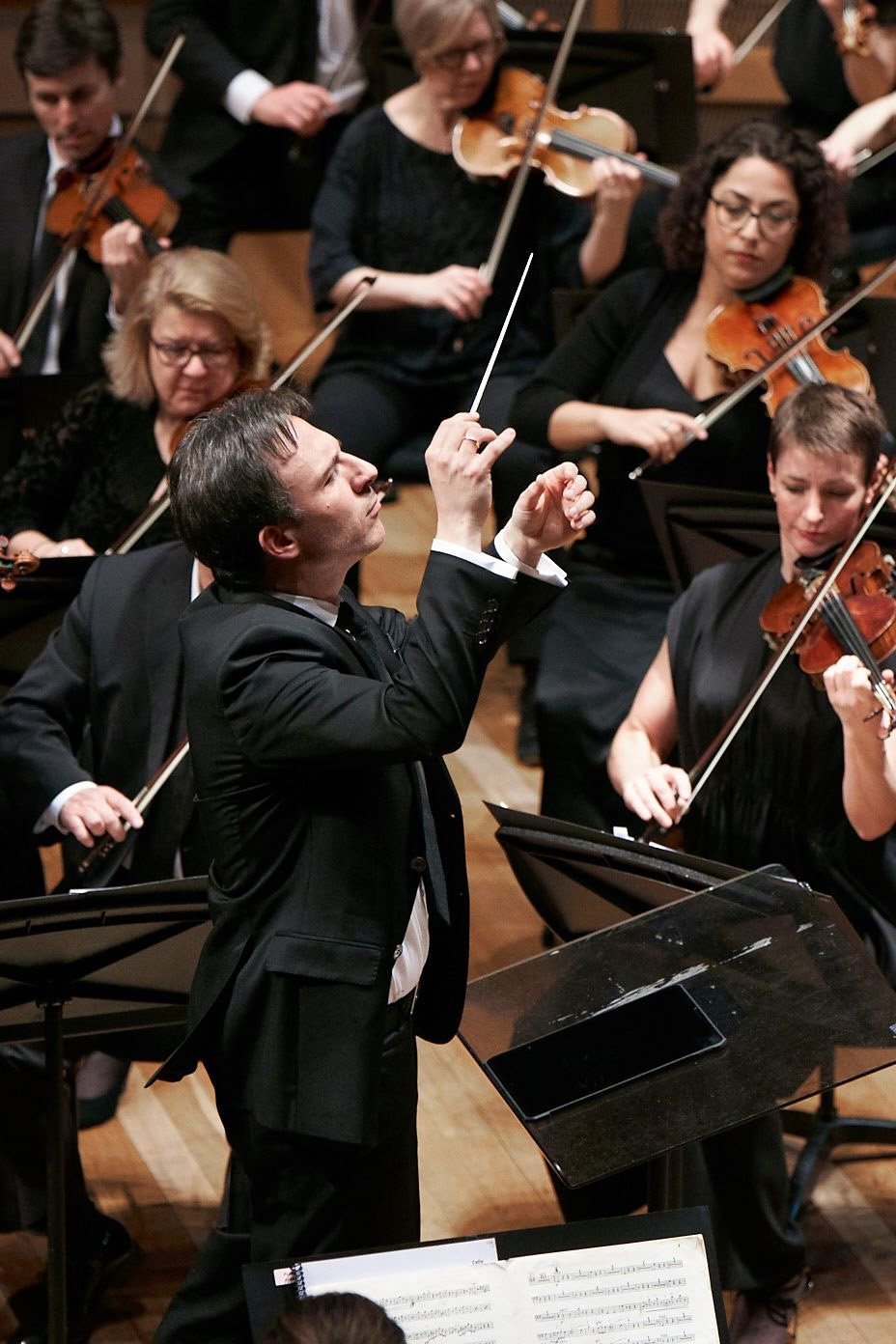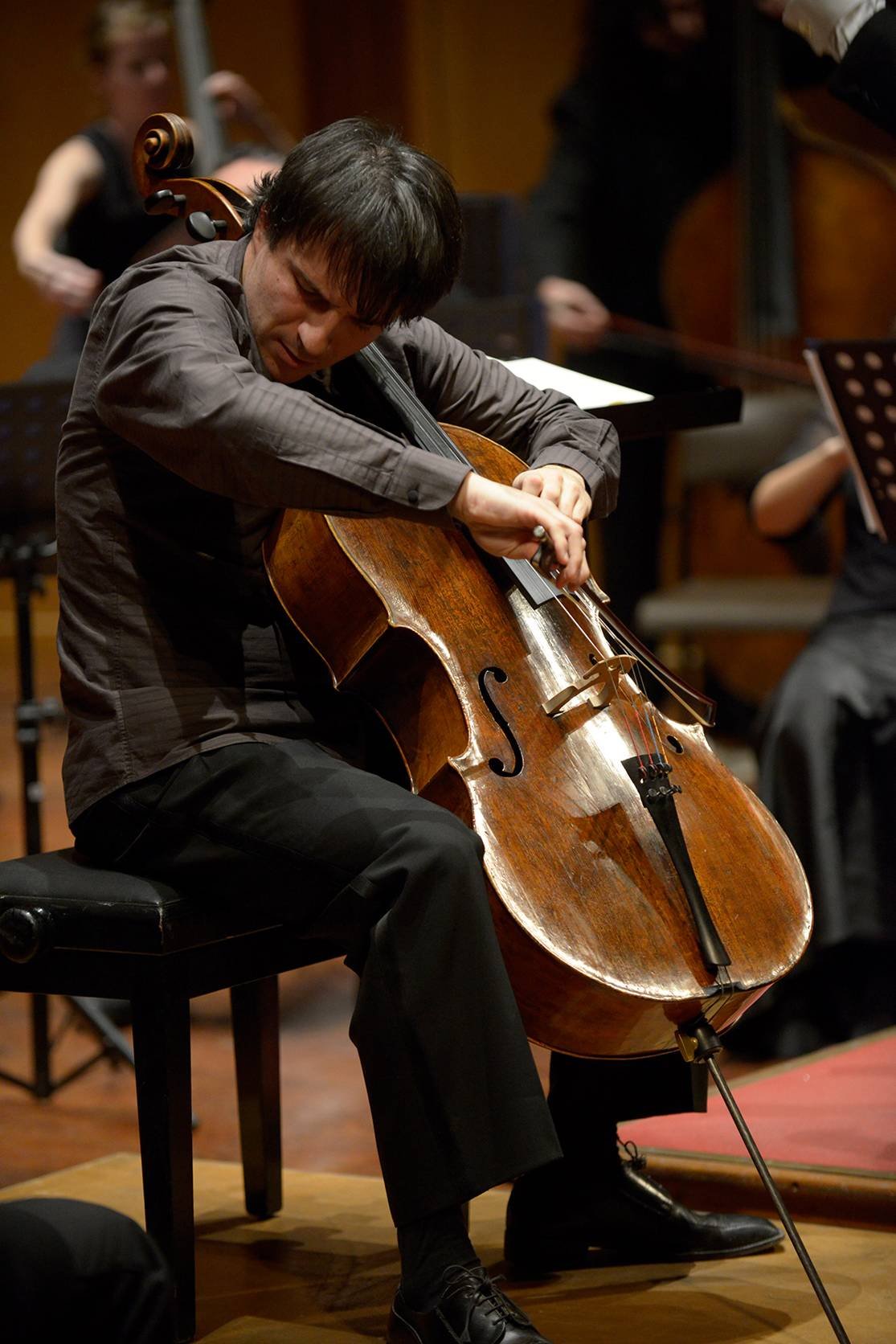
They say every cloud has a silver lining and for Australian-based Umberto Clerici, Covid’s silver lining has been a change in career direction. He tells Rebecca Fox about taking up the baton.
Seven years ago Umberto Clerici took to the Dunedin Town Hall stage to perform a cello concerto.
On Saturday night he will again take to a Dunedin stage but this time to conduct a cello concerto.
"It’s a good show of how life can change. Also how Covid; which has been disastrous in general for the performing arts, but it gave me an opportunity to develop."
Given the title piece for the concert is Crouching Tiger, a concerto written by Chinese-American composer Tan Dun for cellist Yo-Yo Ma based on the Oscar-winning score for Ang Lee’s film, Crouching Tiger, Hidden Dragon, it is fitting a former cellist will lead the way.
As a cellist Clerici has never played the piece so it means he has not got any "prejudices" about it, but says he will give some time to looking at the cellist’s part.
"I’ll be doing what I can to really help the cellist be as free as possible."
For Auckland-based cellist Ashley Brown, a founder of the NZ Trio, that is music to his ears as having a conductor who can balance an orchestra so the cello can be heard is important, especially in this piece.
While Brown had heard the music before - the first DVD he bought was the Ang Lee film - it was not until last year that he found out the film’s music score had been turned into a concerto for cello and orchestra.
"It’s such a cool piece."
There are challenges in playing it as it requires quite "rough treatment" of his fragile 1760 English cello using a guitar pick to coach out of it the exotic sounds required for the piece.
"I’ve spent all my life playing cello and you have to throw it all out the window."
It also meant to learn the piece he used his "stunt" cello, to ensure he did not break his performance cello.
"It takes a lot of work to make sure I don’t break her."
However, he is looking forward to meeting Clerici and performing the piece with him.

He first had the opportunity to see if conducting was for him four years ago when the SSO asked if he was interested in leading a concert at the Sydney Opera House for an international convention.
"I was always interested, not necessarily in conducting, but always interested in communication, in the involvement between musicians. I was curious. I wanted to try."
So he said yes and began six months of training to be ready for the concert.
"It felt very natural with your own colleagues. Most of the time when you do it with your own colleagues they hate it, suddenly from playing with them you are bossing them around or telling them what to do. My colleagues were so supportive."
The success of that concert led to the SSO giving him more opportunities to conduct in its regional touring programme and he continued to study alongside his cellist role.
Then Covid hit, concerts began to be cancelled and the SSO shut down for six months. So Clerici used the time to read all he could, study scores and relearn all his movements.
"I used that time to transition completely. Since I was 5 I played the cello, so every musical instinct was connected [to it] but with the baton it’s the same instinct but different movements."
In the second year of Covid, some concerts could go ahead but they could not bring their programmed overseas conductors in.
"That is when it really fast forwarded, local conductors had this opportunity."
Clerici grabbed the opportunities with both hands, travelling Australia conducting regional and state orchestras.
"Since then it has gone crazy. It’s boosted me so much faster."
This year alone he has conducted a concert series for the Queensland Symphony Orchestra, took the podium with the Melbourne Symphony Orchestra, debuted with the Western Australian Symphony Orchestra conducting Mendelssohn’s Third Symphony and the Adelaide Symphony Orchestra with a programme of Mozart and launched the SSO’s autumn season with Hayden.
The Queensland Symphony Orchestra liked his work so much he was called back and appointed its chief conductor starting in January next year.
As his career has been accelerated by circumstances, Clerici is aware it means he has not had the usual conductor’s career path of starting out from the bottom and working his way up.
"I’m very conscious because I completely skipped that. I started at the opera house with a state orchestra."
While it gives him the opportunity to conduct a huge repertoire, Clerici wants to have time to develop his skills and prepare properly for each performance, admitting he is "obsessive" in his preparation as he "needs to know" every part.
This means his calendar is full for next year and he is not taking anymore bookings to allow him the time to continue to prepare and study.
He gave up the cello a little over a year ago and says he has not yet missed the instrument he spent 35 years playing, as he had played the pieces he wanted to with orchestras and in chamber music.
"I needed a little bit of a break from the cello."
As Clerici does not really remember learning the cello, he is loving the experience of learning conducting, of being able to enable musicians to reach their full potential and express their own personalities within the structure of an orchestra.
"That’s what really fascinates me."
He also loves having time to spend on works which he did not have in the past when he was so busy playing cello.
"I love having those hours to actually try to penetrate a piece."
His experiences as a musician contribute to his quick success in conducting, he believes. The musicians he conducts know he has been there and walked in their shoes.
He is aware the character of every orchestra is different and knows he has only a short period with each one to judge what they need to make the concert enjoyable for all.
Clerici is looking forward to the Dunedin concert, especially as there is more generous rehearsal time with the DSO, which allows the musicians to get to know the piece enough to interact openly.
Another work being performed in Dunedin is Biber’s Battalia a 10, a pantomime of battle written in the late 17th century.
"It is completely mad - everyone is drunk. In a way it sounds so modern. It is a good pairing with the Tan Dun piece."
He is also looking forward to the Beethoven piece which he describes as mystical.
"Despite not sounding super modern, in spite of that it is just as ambitious. The music is so still. The entire concert has a look of the future in a way that it is not destructive or revolutionary but much more sophisticated."
Clerici says despite the Queensland appointment he will remain based in Sydney. Instead, he will commute to Brisbane for his QSO commitments.
TO SEE
Crouching Tiger, Dunedin Symphony Orchestra, King’s and Queen’s Performing Art Centre. August 13 at 5pm; August 14 at 3pm.











